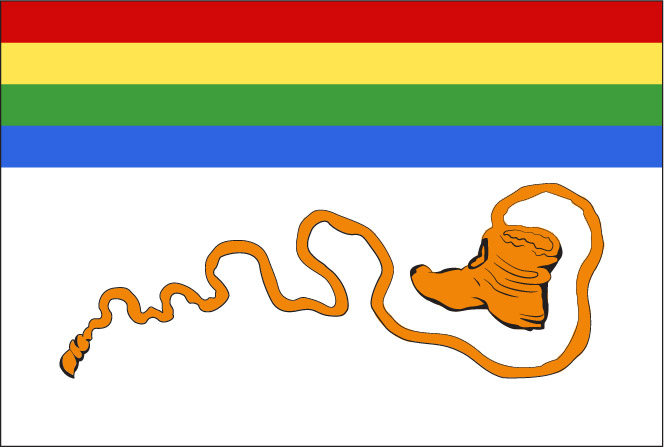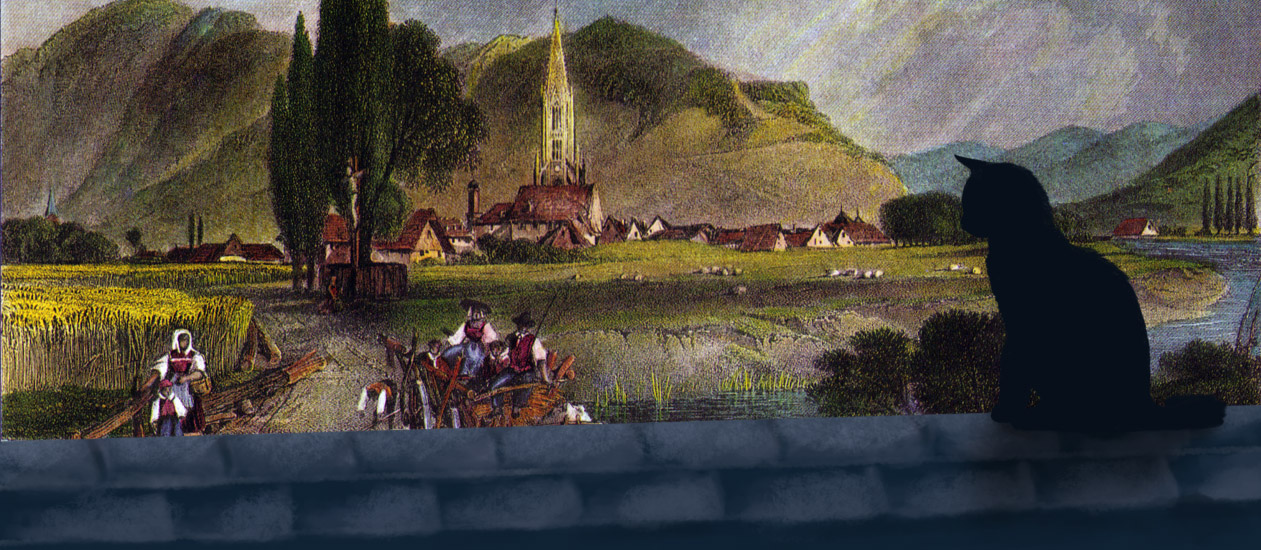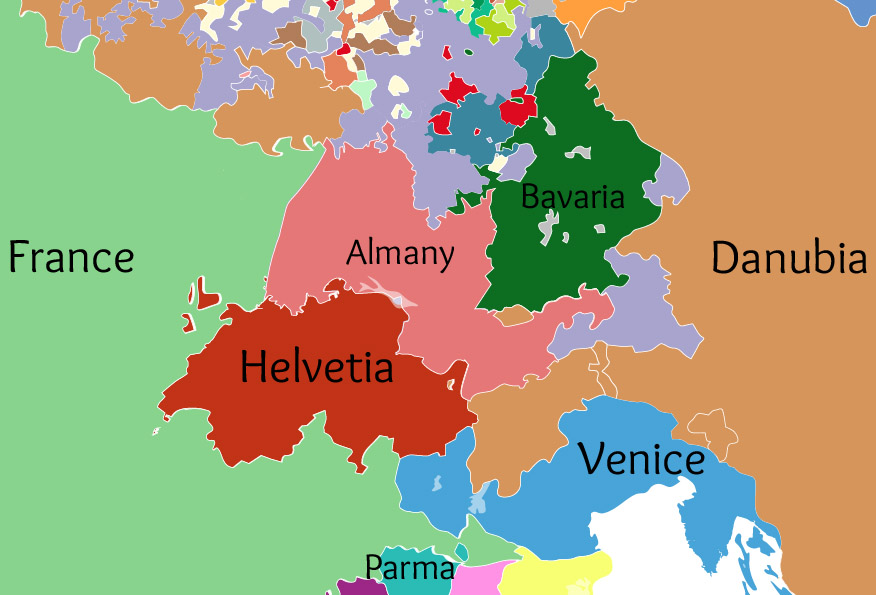Almany
The Federated Almain States
They boast of being the first true democracy in Europe.... This may be so, but there is a reason I never publish my first drafts.
Though North Ternguiré boasts a number of democratic societies, they are still hard to come by in Europe. Almany is one of the first modern examples. The state came into being after the Great Peasants' War in 1526 and was founded on Protestant principles.
Almany is a federation of six states. These are:
- Baden
- Hohenzollern
- Württemberg
- Tyrol
- Trent
- Palatinate
Each state is ruled by a direct democracy in which all citizens over the age of 25 votes on legal matters. Each county also elects a representative to serve in the federal Diet. Almany was founded on principles of equality and brotherhood. Noble ranks are not afforded deference within Almany, and it is the only country to provide free, optional schooling for all children until the age 16.
Voting Rights for Women
Traditionally, only male citizens were allowed to vote. This changed in 1768, when women were granted suffrage after over a decade of campaigning.Almany was envisioned as a utopia by its revolutionary founders. The goal was the create a land free of tyranny and poverty. They have done their best to create this, but have struggled to implement all their ideals.
Structure
The democratically elected head of state is known as the Bauernführer (farmer's leader). The title was initially derisively applied to leaders of the revolt by their enemies, but the moniker was taken up with pride. The Bauernführer resides in the capital, Freiburg.
The federal Diet meets in Freiburg to make laws regarding the entire country. Members of the Diet are elected by each county by every adult citizen over the age of 25.
Part of the Diet's job is to carefully allot resources throughout the states. During years of low harvests, they redistribute agricultural harvests, for example, to make sure all citizens get an equal amount to eat.
From Planned to Mixed Economy
In the early days, the Diet was responsible for allotting harvest every year. The economy was carefully planned to make sure all citizens were equal. Over the years, this has slowly slipped into a mixed system where the Diet steps in only during years of bad harvests or other shortages.History
Throughout the medieval era, the land that is now Almany was part of the Holy Roman Empire. Most of Almany is in what was called Swabia, in and around the Black Forest region. Like most Almain territories, this region operated under the feudal system with impoverished farmers working on land owned by the wealthy aristocracy.
Unrest built in the region during the 16th century. The teachings of Martin Luther inspired the locals, and Protestantism seemed to offer a release from both the Roman Catholic Church and the noble authorities. This unrest led to the Great Peasants' War, which ended in a victory for the revolting farmers thanks to receiving aid from Ireland.
After the war, the surviving leads of the movement came together to create a new country that operated on principles of equality and liberty under God. The first Bauernführer was Michael Gaismair, one of the most significant leaders of the war. They established their capital in Freiburg, which they had seized early in the war and used as a military base throughout.
Every since its foundation, Almany has struggled. Ousted feudal lords staged multiple attempts at reconquering their "rightful" lands over the years, each time fought back in wars that brought significant losses to Almany. Only the ongoing support of Ireland and other Arbitrist states (such as Aragon or Swealand) - who supported them purely to maintain a thorn in the side of the Catholic Holy Roman Empire - enabled them to survive.
After the war, Venice became one of their only true allies as it had created the Protestant Church of Venice and supported the only other Protestant country in Europe (Followed by Helvetia after it also adopted Protestantism). Most other countries refused to conduct trade with them or to even acknowledge their sovereignty, out of fear that it would be seen as showing support to populist uprisings and perhaps inspire similar revolutions in their own land.
With limited trade partners, enemies on all sides, and a revolutionary political system with many kinks to work out that led to frequent infighting, Almany has had a difficult history. Despite it all, the fledgling democracy powered onward and remains an independent country over 200 years later. Almany became the only nation to fully support France's own populist uprising, and is currently the new republic's staunchest ally.

Gleich unter Gott
Equal under God
Founding Date
1526
Type
Political, Federation
Demonym
Almain
Government System
Democracy, Representative
Power Structure
Federation
Economic System
Mixed economy
Currency
Almain mark
Neighboring Nations



